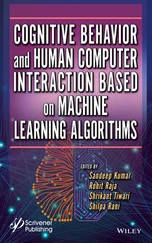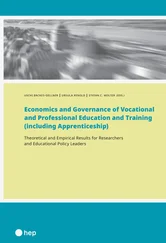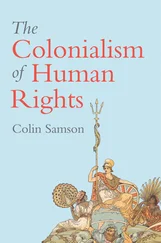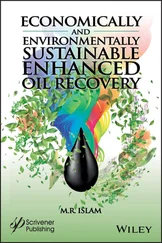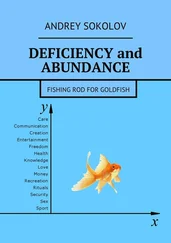Andrey Sokolov - Economics and human rights
Здесь есть возможность читать онлайн «Andrey Sokolov - Economics and human rights» — ознакомительный отрывок электронной книги совершенно бесплатно, а после прочтения отрывка купить полную версию. В некоторых случаях можно слушать аудио, скачать через торрент в формате fb2 и присутствует краткое содержание. ISBN: , Жанр: Юриспруденция, Публицистика, popular_business, Философия, на английском языке. Описание произведения, (предисловие) а так же отзывы посетителей доступны на портале библиотеки ЛибКат.
- Название:Economics and human rights
- Автор:
- Жанр:
- Год:неизвестен
- ISBN:9785449090874
- Рейтинг книги:5 / 5. Голосов: 1
-
Избранное:Добавить в избранное
- Отзывы:
-
Ваша оценка:
- 100
- 1
- 2
- 3
- 4
- 5
Economics and human rights: краткое содержание, описание и аннотация
Предлагаем к чтению аннотацию, описание, краткое содержание или предисловие (зависит от того, что написал сам автор книги «Economics and human rights»). Если вы не нашли необходимую информацию о книге — напишите в комментариях, мы постараемся отыскать её.
Economics and human rights — читать онлайн ознакомительный отрывок
Ниже представлен текст книги, разбитый по страницам. Система сохранения места последней прочитанной страницы, позволяет с удобством читать онлайн бесплатно книгу «Economics and human rights», без необходимости каждый раз заново искать на чём Вы остановились. Поставьте закладку, и сможете в любой момент перейти на страницу, на которой закончили чтение.
Интервал:
Закладка:
Economics and human rights
Andrey Sokolov
Illustrator Tatiana Sokolova
© Andrey Sokolov, 2018
© Tatiana Sokolova, illustrations, 2018
ISBN 978-5-4490-9087-4
Created with Ridero smart publishing system
Andrei Sokolov
Economics and human rights
Economics, politics, laws, sociology, human rights, psychology, futurology, philosophy, ethics
Short translation into English
(The abridged version, without most tables, graphs, illustrations, quotes, examples, statistics, evidence.)
In advance, I ask the reader to forgive me for my English and the quality of the author’s translation
Full text version available in Russian
2017 in russian
2018 in English
From the author
The purpose of this book is to show the way of combining economic benefits for the state with observance of human rights.
Show that the state is getting richer when the rights of the inhabitants of this state are fully respected, the rights of all people on earth are fully respected.
Prove that respect for human rights makes people happier, and the country and their inhabitants are richer.
If this book brings the moment when economists and politicians will begin to consider the point of reference of human rights and human benefits, and not the blessings of states and peoples, then the author will be happy.
I hope this book will make the world better. At least a little better and more humane.
Declaration
We hold these truths to be self-evident, that all men are created equal, that they are endowed by their Creator with certain unalienable Rights, that among these are Life, Liberty and the pursuit of Happiness.
United States Declaration of Independence
On December 10, 1948, the UN adopted the Declaration of Human Rights. It sets out the principles that all nations and countries must follow. In this document there are only 30 articles that describe the basic and immutable human rights. For example, the right to life, health, work, rest and so on. (156)
Since then more than 60 years have passed. Do you think how many countries in the world fully comply with the provisions of this Declaration? In which country in the world are human rights enunciated by the United Nations fully respected? Not in one!
No country in the world has implemented the provisions of the Declaration of Human Rights in full in its practice, in its laws, in the lives of its citizens.
In no country of the world human rights are fully observed.
In this book you will find evidence of this.
From the Universal Declaration of Human Rights
Article 2.
Everyone is entitled to all the rights and freedoms set forth in this Declaration, without distinction of any kind, such as race, colour, sex, language, religion, political or other opinion, national or social origin, property, birth or other status. Furthermore, no distinction shall be made on the basis of the political, jurisdictional or international status of the country or territory to which a person belongs, whether it be independent, trust, non-self-governing or under any other limitation of sovereignty.
Article 18.
Everyone has the right to freedom of thought, conscience and religion; this right includes freedom to change his religion or belief, and freedom, either alone or in community with others and in public or private, to manifest his religion or belief in teaching, practice, worship and observance.
Article 19.
Everyone has the right to freedom of opinion and expression; this right includes freedom to hold opinions without interference and to seek, receive and impart information and ideas through any media and regardless of frontiers.
Do citizens, residents of all these countries, benefit from this? Of course not.
Perhaps it is advantageous for the state economy not to respect human rights? Also no. And it’s easy to prove.
Can the budget benefit from the infringement of human rights? Can the budgets of countries where human rights are observed less richer than the budgets of countries where human rights are greater, where they are guaranteed and protected by the state? Also no. And this will also be proved.
Can the police, the army, officials, teachers, doctors, patients, pupils be better off from inferior respect for human rights? Can the infringement of rights promote the construction of good roads, improve the quality of education, medical care? No. And this is also quite simple to prove.
The purpose of this book is to prove that everyone is benefiting from respect for human rights: the state and citizens, hospitals and schools, business and tax services, doctors and patients, teachers and students, students, police officers and even officials.
The only one who benefits from violation of human rights – bandits, criminals and associated statesmen and pseudo-businessmen.
In this book you will find evidence that the observance of human rights leads to an increase in citizens ‘incomes, to citizens’ freedom, to the safety of residents, to an increase in budget revenues, and thus to better living conditions for all law-abiding citizens of the country.
The book examines the basic concepts of human rights and their relationship with the economy and state revenues. On specific examples, it examines whether states observe human rights and what benefits the state budget can receive if it fully respects human rights.
We will consider the question of observing human rights mainly on the example of the developed democracies of the First World, since we will not examine such obvious violations of rights as torture, but less noticeable, but no less fundamental.
Another reason for this sample is high-quality and reliable statistics.
And, of course, the main reason why the book talks about developed democracies is that it is necessary to understand where such democracies move further. After all, any stop is a step back.
Violations of human rights in the undemocratic states of the “second” and “third” world are obvious and do not require books, but specific actions.
In this book, we will examine less obvious violations that hamper the growth of the economies of countries.
The author does not pretend to “know the answer what to do.” The book is an invitation to a discussion, a philosophical question.
In 1946 Ludwig von Mises wrote that economic science should not be left to the training classes and offices of statisticians and should not remain in esoteric circles. It is the philosophy of human life and activity and concerns everyone, the energy of civilization and human existence. (146)
As arguments in this book, basically two approaches are used. The first is logical reasoning, accepted both in philosophical literature and in the writings of well-known economists, for example, Milton Friedman or Friedrich von Hayek, Nobel Prize winners in economics. Their works “Capitalism and Freedom”, “Freedom to choose”, “Road to slavery” are not only quoted in this book, but partly are the cause of its occurrence.
The second is the “diagnosis” of ex juvantibus. This method is common in medicine. Its essence is that when a certain disease is supposed that can not be laboratory confirmed, treatment is appointed “blindly” and if it helped, then the diagnosis is confirmed. To do this, this book provides examples of countries that have carried out certain experiments, allowed or prohibited drugs, weapons, immigration, prostitution, etc. And the results of these actions.
In addition to medicine, this method of proof is also used in physics, when a series of experiments confirms a certain theory.
Читать дальшеИнтервал:
Закладка:
Похожие книги на «Economics and human rights»
Представляем Вашему вниманию похожие книги на «Economics and human rights» списком для выбора. Мы отобрали схожую по названию и смыслу литературу в надежде предоставить читателям больше вариантов отыскать новые, интересные, ещё непрочитанные произведения.
Обсуждение, отзывы о книге «Economics and human rights» и просто собственные мнения читателей. Оставьте ваши комментарии, напишите, что Вы думаете о произведении, его смысле или главных героях. Укажите что конкретно понравилось, а что нет, и почему Вы так считаете.





